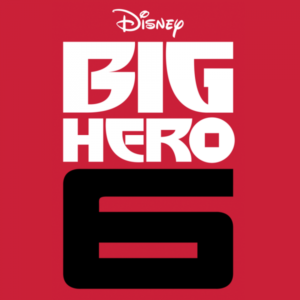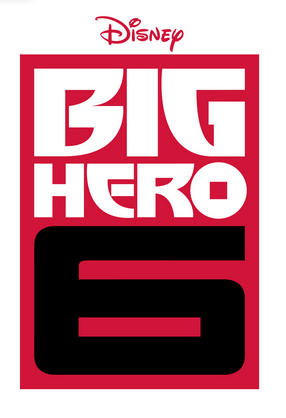Review: Big Hero 6
 If you really want to get the bad guy, it’s logical to conclude you need a hero. You might further conclude, especially if you’re fourteen, that you need a superhero.
If you really want to get the bad guy, it’s logical to conclude you need a hero. You might further conclude, especially if you’re fourteen, that you need a superhero.
But to go from there to creating a superhero? For that, you need adolescent logic combined with genius-level skill. So enter, stage-right, Hiro Hamada, the protagonist of Disney’s just-released Big Hero 6.
I’ve never had much interest in superheroes; I don’t know why, although I suspect it’s related to why I never cared for comic books. But I knew I wanted to see Big Hero 6, due in large part to my memories of The Incredibles and Frozen. (This makes sense. Frozen was a Disney computer-animated movie, and it was very good; The Incredibles was a computer-animated superhero movie, and it was excellent; Big Hero 6 is a Disney computer-animated superhero movie. See? It follows.)
From the very beginning, Big Hero 6 exhibits its blended nature. It’s a superhero film, yes, but beneath the flash and action is an essentially sci-fi framework. The city of San Fransokyo – a delicious mesh of Tokyo and San Francisco – and elements such as bot-fighting create a world that is near to ours and yet misses it entirely. This may be the future, and it may be an alternate universe, but either way, it’s sci-fi. The story brings even “harder” sci-fi concepts into play, anchoring deeper into science fiction and eventually leading to one of the film’s most imaginatively beautiful moments.
The characters are likable (especially Tadashi) and often quirky (especially Wasabi and, uh, Fred). As in Frozen, a sibling relationship is the linchpin of the story. But here the relationship is less complex and far more positive. It’s also brother/brother, which I mention to bring up something I’ve long wondered about: Why, on those unusual occasions when sibling relationships really are important in a story, are they almost always brother/brother, or sister/sister, and not sister/brother?
There’s a dose of tragedy in Big Hero 6 – nothing new in that, even for a so-called “family movie”, but the movie digs deeper and darker than normal. It deals strongly, though with a light hand, in themes of revenge. The movie also raises the old comfort that “He lives on in our hearts” – a standard consolation when people want to provide some assurance of continuing life but don’t want to bring up heaven. But Big Hero 6 breaks form to portray dissatisfaction with the comfort: “He’s gone” – a simple counterpoint, simply expressed, but true and right at the heart of the matter.
Not that the movie seeks comfort in heaven, or that dissatisfaction is disbelief. All truths can seem like platitudes in the face of death, and to believe is not always to be comforted. But it was a sad moment and an honest one, and it felt almost subversive.
More than anything else, Big Hero 6 is a movie of enormous creativity. From the futuristic (or AU) world of San Fransokyo to a glimpse of what I can only imagine to be some sort of fourth dimension; from the robots and other tech to the incredible CGI that brought them to full glory – the cleverness of this movie is wonderful.
Hero 6 is a movie of enormous creativity. From the futuristic (or AU) world of San Fransokyo to a glimpse of what I can only imagine to be some sort of fourth dimension; from the robots and other tech to the incredible CGI that brought them to full glory – the cleverness of this movie is wonderful.
And so, for that matter, is its heart. As Big Hero 6 follows Tangled and Frozen, I think we’re on the wave of the second Disney Renaissance.











































My boys and I saw the movie last night and absolutely loved it. In fact, my 12 yo son said it was his new favorite film ever, and as far as animated movies go I’m hard pressed to disagree.
This is one of the reasons Gravity Falls is so delightful. I’m only a couple of episodes in, but I can already tell that Mabel and Dipper’s relationship is the keystone of the series — and instead of constantly squabbling over their differences as so many fictional siblings do, they actually appreciate and enjoy each other. It’s refreshing.
I wasn’t crazy about it. I found the motivation for the villain completely unbelievable… or rather, extremely inconsistent with his actions.
I tend to agree about the villain. He acts like a 14-year-old would expect him to, not how an adult really would act. There were also a few logical inconsistencies I thought, but none of that stopped me from loving the creativity, characters, and animation in it. What a ride! And don’t forget to stay through the credits. 🙂